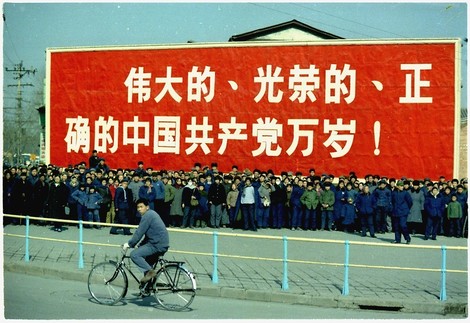Your podcast discovery platform
Curious minds select the most fascinating podcasts from around the world. Discover hand-piqd audio recommendations on your favorite topics.

piqer for: Global finds Globalization and politics
Nuala Lam is a bilingual freelance journalist with a focus on civil society, justice, and identity in China. She speaks, reads and writes Mandarin Chinese and forms her analysis of contemporary China through both English and Chinese language media. She has worked for NGOs and news media in Beijing and Shanghai and has also spent extended periods in the Chinese countryside, seeing the country's diversity and uneven development first-hand.
Her postgraduate research at the London School of Economics focussed on English-language coverage of China, investigating the translation of journalistic ethics between differing political contexts. She also holds a first class degree in Chinese and History from the School of Oriental and African Studies, University of London.
Balzac And The Chinese Cultural Revolution
As someone who was idealistic and knew very little about China, it was hard not be captivated by the profound sincerity of people, husbands and wives at factories who would sit down and talk about the division of labour in their households because that was something they were engaged in talking about through the criticism of Confucian thinking.
Dr. Emily Honig remembers her first trip to China in 1974 and witnessing the cultural revolution first hand. In this episode of East Asia for All podcast, Dr. Emily Honig and Dr. Chris Connery discuss this controversial period in China’s recent history and look at the dominance of certain voices in defining how it is remembered.
Da Sijie’s memoir, Balzac and the Little Chinese Seamstress, tells the story of the author's time spent in the countryside as a teenager on the border between the southwestern Chinese province of Sichuan and Tibet. During the cultural revolution, Da was a zhiqing, or ‘sent down youth’, working with peasants in the Chinese countryside doing taxing manual labour. The author of Wild Swans, Jiang Qing, is another former sent down youth, and Honig notes that:
There have been hundreds of memoirs that the sent down youth have written about their experience, but the voices that we have access to, that are always heard are those of the sent down youth themselves—the perspective of the countryside is so missing.
As academics researching the cultural revolution, Honig and Connery explore the narrative of suffering that dominates our understanding of this period of history. They discuss the backlash they have encountered when publishing work that deviates from this discourse.
Honig recommends—and I second this recommendation—a book called Some of Us by a group of Chinese American academics who offer a different picture of life as teenage girls during the cultural revolution.
This episode is well worth a listen for anyone interested in a more nuanced look at recent Chinese history.
